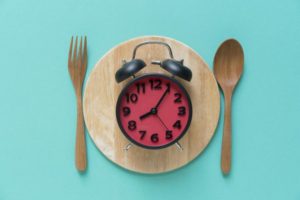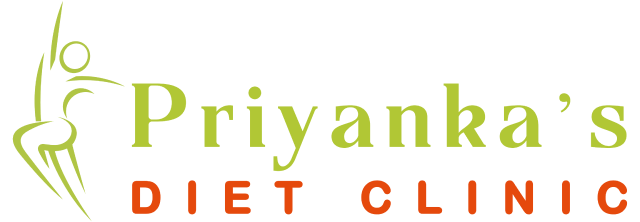How Many Meals Should We Have In A Day – When it comes to the question of “how many meals should we have in a day?”. There are two popular meals planning or you can use a method for planning meals in a day. Here we will cover all the pros and cons of different meal planning popular these days and its scientific analysis.

Food is love for most of us. There are tons of cuisines and dishes that one can crave all the time. But to stay fit and healthy, planning a meal is a vital part. It is important to give attention to what you are eating and how frequently you are indulging yourself in good food or bad. If you have some questions regarding meal planning, then we hope this blog will be a big help for you.
Scientific ViewPoint on Frequency of Meals
As per the published article on the Influence of meal frequency and the role of fasting on Human health, there is a direct link between high meal frequencies and the risk of diseases. There is a significant increase in the disease risk with a high meal frequency compared to a low meal frequency. But other factors need to be in consideration – daily energy intake distribution, nighttime eating, breakfast, and caloric restriction. There are many perks of following some fixed patterns for meal planning. For instance, having breakfast, a higher proportion of energy in the early hours, regular fasting periods, and reducing meal frequency has the following benefits-
- It helps in reducing inflammation.
- It improves circadian rhythmicity.
- It leads to increased autophagy.
- It helps reduce stress.
- It is good for your gut health.
In addition, there are many independent studies conducted around the world producing different results. So, there is no universal way to solve this question of finding the correlation between the number of meals and its effects on our health.
How Many Meals Should We Have in a Day?
As per the experts, there are two popular kinds of meals – 3 meals per day or 5-6 meals per day. Here, we will discuss these two meals in detail.
3 meals per day ( less frequent meals but large size)
Some experts recommend eating 3 meals per day. This helps in lowering the frequency of munching on high-calorie foods. It is the most people followed and has significant improvement in the chance of losing weight. But there are cons as well, such as it can lead to eating much more than your stomach can handle, and restricting yourself to 2-3 meals only can lead to fasting or skipping meals. This will lead to a loss of sense of making decisions and ultimately lead to eating more. Also, research suggests that skipping a meal can lead to eating more unhealthy food. So, this plan might not work for weight loss in the longer run.
5-6 small meals per day ( Frequent small meals)
This type of meal is quite popular, especially on social media. As the name suggests, there are small 5-6 meals per day. Dietitians curated these meals based on height, age, weight, lifestyle, etc. Also, these meals are quite popular for weight loss. Have a small meal every 2 hours, reduce munching on unhealthy snacks and there is no fasting which helps in coping with continuous thoughts of foods. However, this particular diet may not work with people’s busy schedules and has no time to prepare a homemade meal. And ended up snacking on high-calorie junk food.
How to Prep a Healthy Meal?
As you are now aware of all the pros and cons of having different types of meals. It is up to you to choose one as per your own requirement. It is not important how many times you are eating in a day but what you are eating matters. A balanced diet and maintaining calorie intake are important for planning a meal. Also, this balanced diet plan is planned by professional dietitians as it depends upon a number of factors such as weight, height, age, profession, medical history, etc. Coming to the calorie intake, the figure may vary from person to person. For a male adult 2500 calories and for a female adult, it will be 1600-1700 calories per day. Also, a balanced diet must be considered vitamins, minerals, protein, carbohydrates, fibers, fat, and other nutrients.
Following is the list of some general list of foods with the quantity that needs to be included in your meals per day-
- Fats are important for the body and there are some good examples of having good fats such as ghee, butter, oil, etc. You can add healthy fats to your daily meal by adding 1 tablespoon of butter, oil, or even 10 peanuts/olives.
- Protein is important for your muscles and gives strength to the body. 2 boiled eggs or grilled chicken, salmon, and vegetarian beans and hummus are good examples of protein.
- Dairy is an important source of calcium and makes our teeth strong. At least half a glass of milk, cheese, yogurt, and vegan almond milk is a good alternative for fulfilling the daily need for dairy that one requires.
- Fruits and vegetables are vital parts of a balanced diet. It is a great source of minerals, fibers, vitamins, etc. One should eat at least 1-2 bowls of vegetables and 1-2 fruits per day.
- Carbohydrates are an energy source and you should add at least 1 bowl of carbs to your daily diet plan. Example – 2 slices of bread, 1 small bowl of potato, and 40g of cereals are some good examples of carbs.
Conclusion
At last, I hope you get all the information regarding “How many meals should we have in a day”. There are many theories and experts’ comments on this question. But the research suggests otherwise sometimes. So, the answer to the question lies in the person’s own choices and finding the best way for your own meal prep. But focus on healthy eating habits and opting for some exercise to stay fit & healthy. For a customized balanced diet plan, feel free to reach out to a dietitian of your choice.






